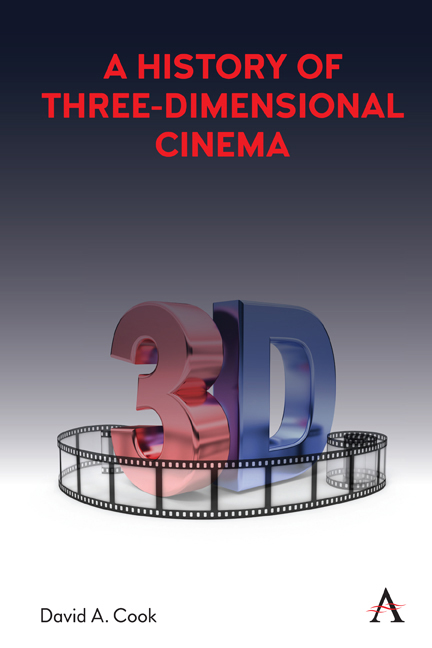Book contents
- Frontmatter
- Dedication
- Content
- List of Figures
- Acknowledgements
- Prefatory Note/Introduction
- 1 “A New Way to Simulate Presence”: The Foundations of Stereoscopic Entertainment, 1427–1888
- 2 “A Very Vivid Impression of Movement”: Early 3D Cinema, 1895–1952
- 3 “See It in 3 Dimension!”: The First Hollywood 3D Boom, 1952–55
- 4 Stereoscopic Revival, 1970–85
- 5 The Age of IMAX, or the “Immersive Cinema,” 1986–2009
- 6 The Blockbuster Years: Digital 3D, 2010–20
- 7 “A Different Kind of Mental Image”: Some Aesthetic Considerations about 3D
- 8 “Experience on Demand”: Virtual Reality
- 9 Conclusion
- 3D Discography: Discs Viewed or Sampled in Preparation for This Book
- Selected Bibliography
- Index
8 - “Experience on Demand”: Virtual Reality
Published online by Cambridge University Press: 22 October 2021
- Frontmatter
- Dedication
- Content
- List of Figures
- Acknowledgements
- Prefatory Note/Introduction
- 1 “A New Way to Simulate Presence”: The Foundations of Stereoscopic Entertainment, 1427–1888
- 2 “A Very Vivid Impression of Movement”: Early 3D Cinema, 1895–1952
- 3 “See It in 3 Dimension!”: The First Hollywood 3D Boom, 1952–55
- 4 Stereoscopic Revival, 1970–85
- 5 The Age of IMAX, or the “Immersive Cinema,” 1986–2009
- 6 The Blockbuster Years: Digital 3D, 2010–20
- 7 “A Different Kind of Mental Image”: Some Aesthetic Considerations about 3D
- 8 “Experience on Demand”: Virtual Reality
- 9 Conclusion
- 3D Discography: Discs Viewed or Sampled in Preparation for This Book
- Selected Bibliography
- Index
Summary
While digital stereoscopy represents the most recent manifestation of a process that began with Charles Wheatstone's stereoscopic line drawings nearly two centuries ago, it is not the end of it. The ultimate technology for seeing things in three dimensions is Virtual Reality (VR), which uses a hybrid of advanced modern technology—Lidar scanners, hyper-accelerated graphic cards, and so on—and the stereoscopic illusion first quantified by Wheatstone to create a state of sensory immersion that borders on otherness. Finding a way to massmarket the VR experience as a form of popular cinema, rather than as an enhanced form of video game, has become the new Grail Quest of the film industry. But VR also has a more elevated, philosophical justification.
The iconic French film theorist André Bazin believed that each new technological development in the history of cinema (e.g., the introduction of sound, color, widescreen, and 3-D) brought it closer to its ultimate destiny—the production of a total simulacrum of realty—which was implicit in its very beginnings. As he wrote in 1946:
The idea of Cinema tends toward a full and total representation of reality, and immediately considers the dream of a perfect illusion of the outside world with sound, color, and depth. If the cinema in its infancy did not have all the attributes of the total cinema of tomorrow, this was no fault of its own, and was only because if fairies were technically impotent and couldn't give it to them even though they wanted to.
The guiding myth, then, inspiring the invention of cinema, is the accomplishment of that which dominated in a more or less vague fashion all the techniques of the mechanical reproduction of reality in the nineteenth century, from photography to the phonograph, namely an integral realism, a recreation of the world in its own image, an image unburdened by the freedom of interpretation of the artist or the irreversibility of time. […] Every new development added to the cinema must, paradoxically, take it nearer and nearer to its origins. In short, cinema has not yet been invented! (“The Myth of Total Cinema,” in André Bazin, What Is Cinema?, vol. 2, trans. Hugh Gray [University of California Press, 1967])
- Type
- Chapter
- Information
- A History of Three-Dimensional Cinema , pp. 137 - 150Publisher: Anthem PressPrint publication year: 2021

